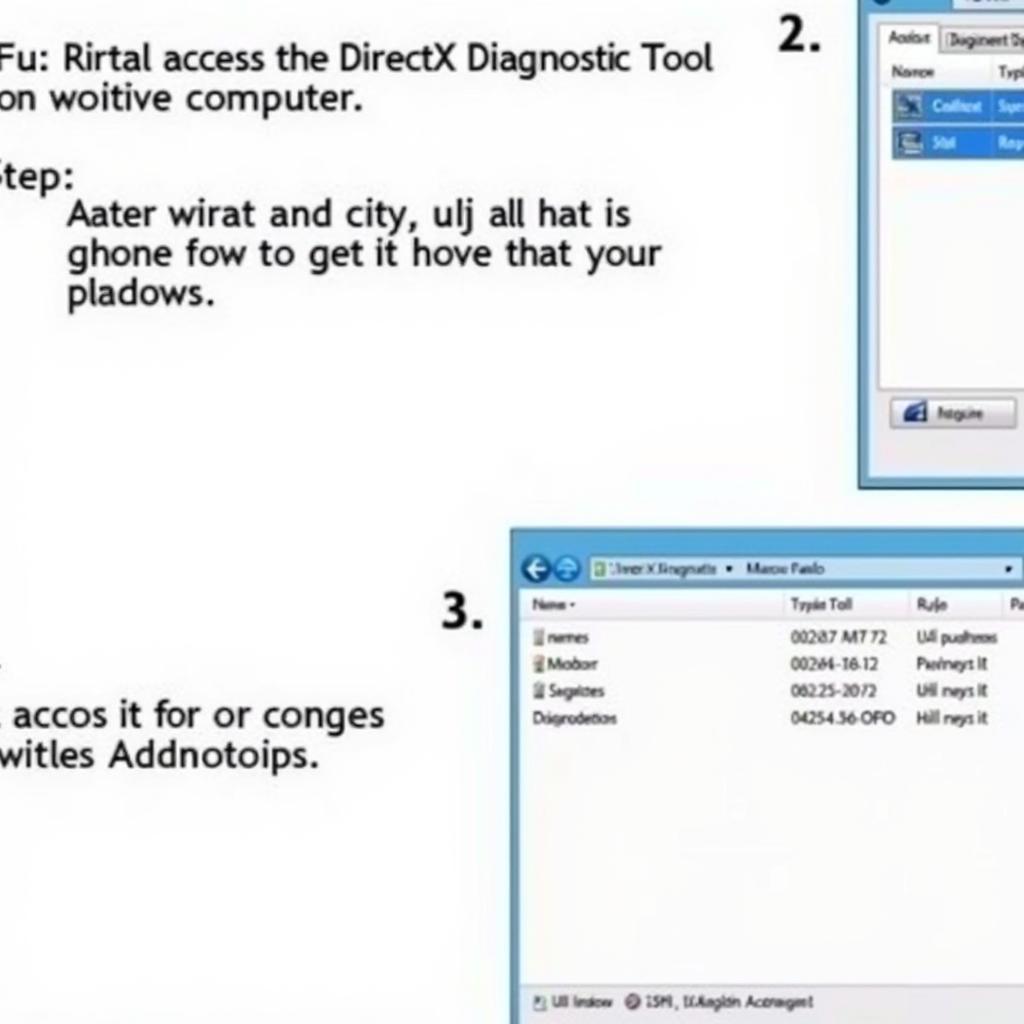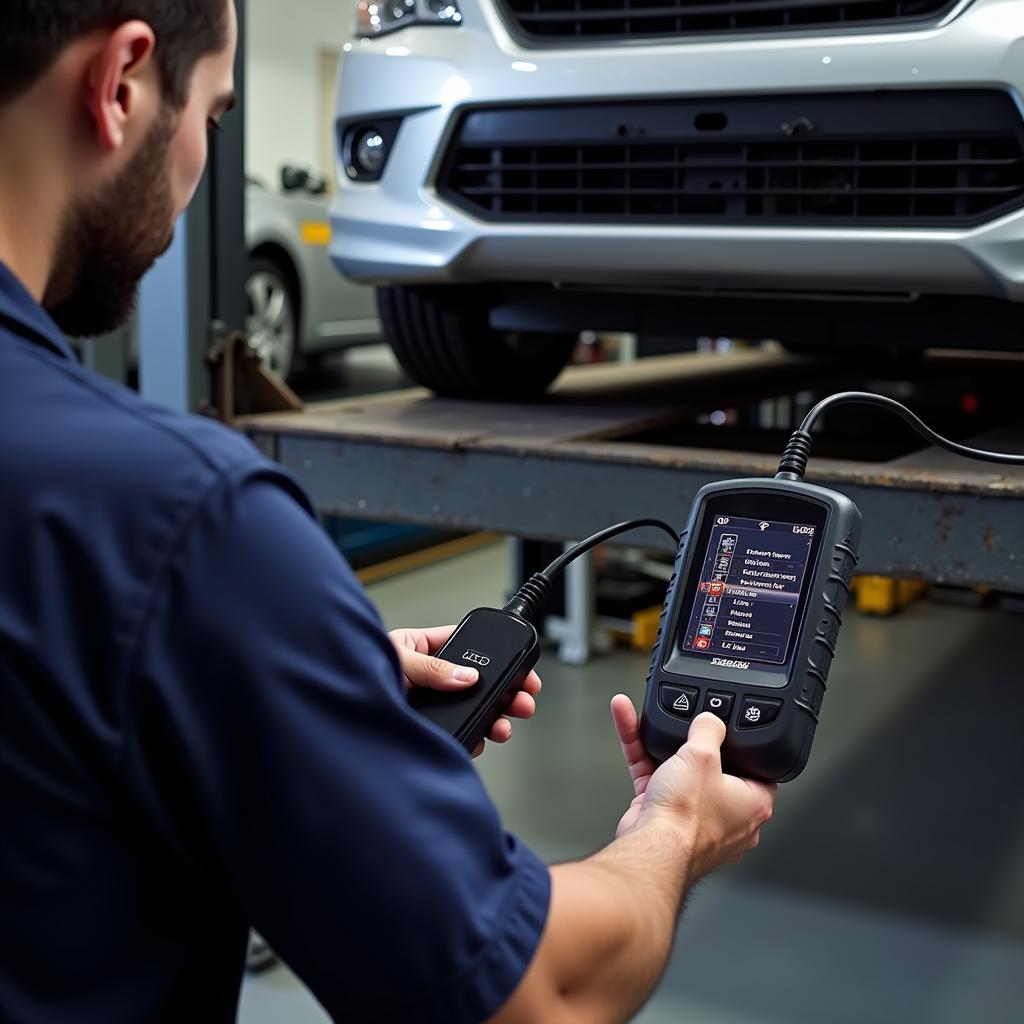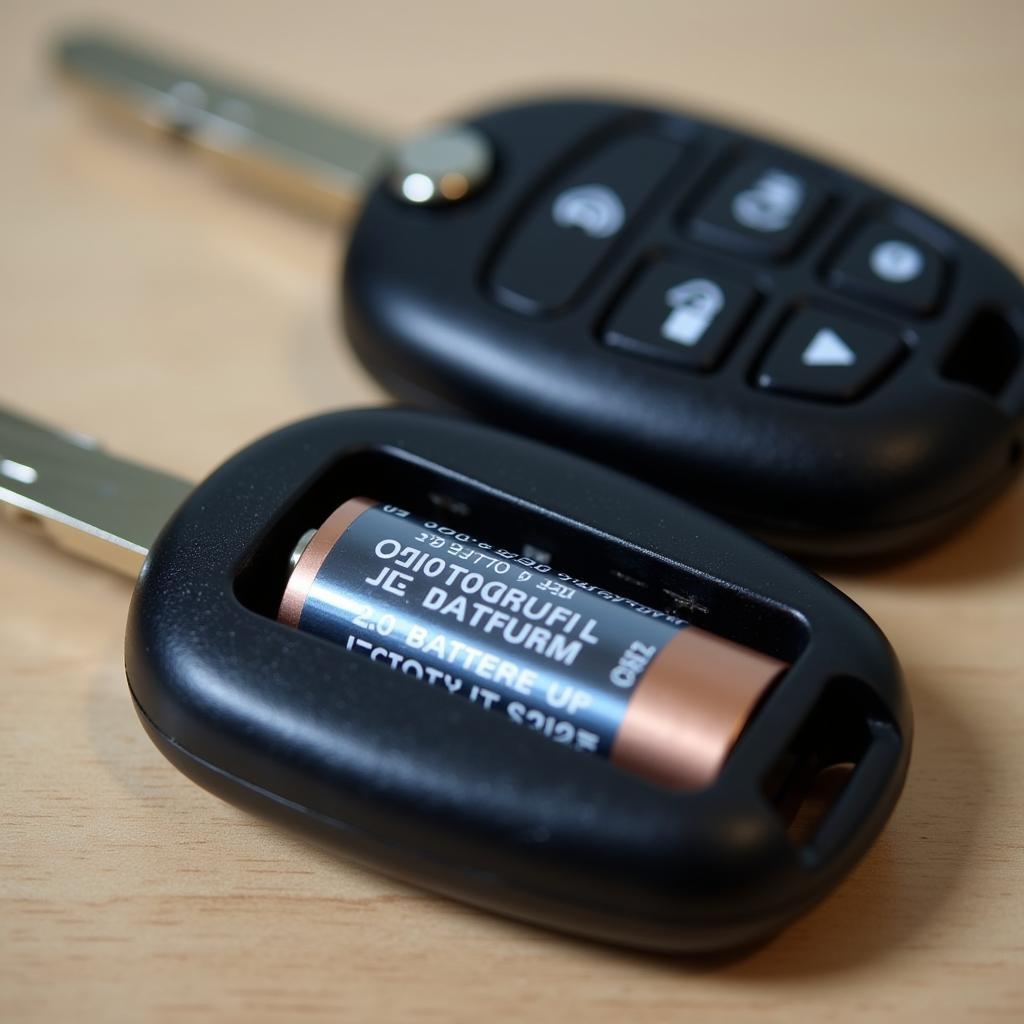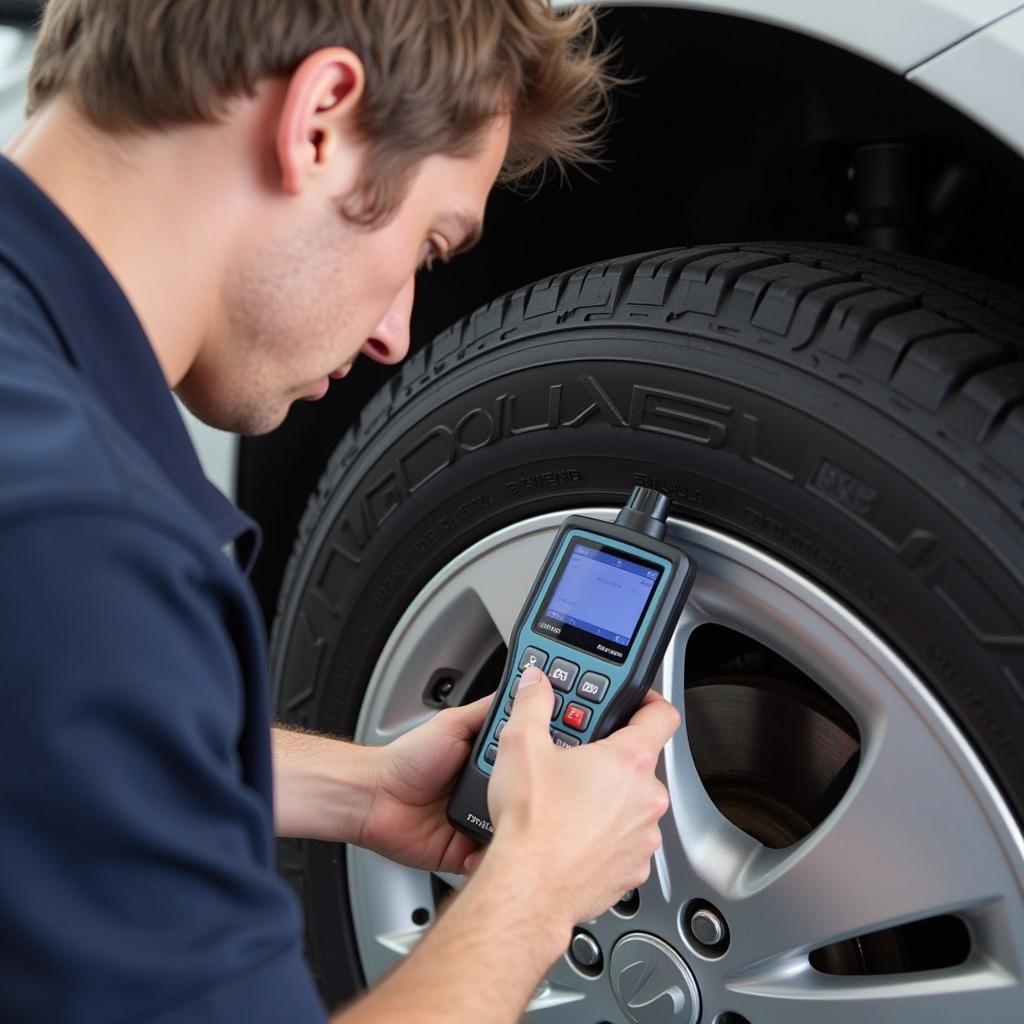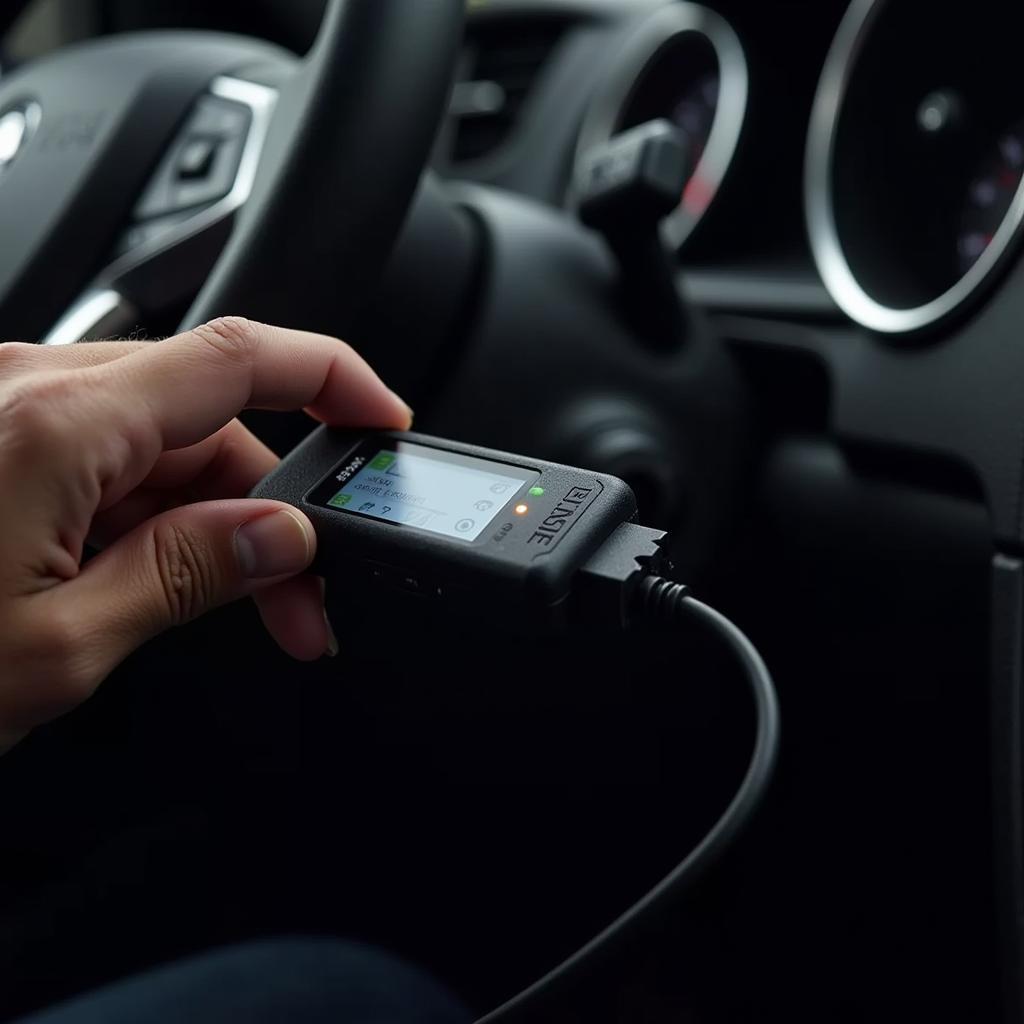Finding The Best Diagnostic Scan Tool For Cars can feel like navigating a maze. With so many options available, how do you know which one is right for you? Whether you’re a seasoned mechanic, a DIY enthusiast, or a car owner looking to take control of their vehicle’s maintenance, this guide will help you choose the best diagnostic scan tool to meet your needs. This comprehensive guide will explore the essential features, benefits, and factors to consider when selecting the perfect diagnostic tool for your car.
Choosing the right car diagnostic tool can save you time and money in the long run, empowering you to diagnose and potentially fix issues yourself. Having a reliable diagnostic scan tool can be like having a mechanic in your pocket. But with a plethora of options available, finding the right fit can be challenging. This article will discuss what to look for when choosing the best diagnostic scan tool for cars, from basic code readers to professional-grade systems. You’ll find information tailored for DIYers, professional mechanics, and everyone in between. Find the perfect tool to unlock your car’s secrets and maintain its peak performance. Check out our guide on Harbor Freight automotive diagnostic tools.
What is a Car Diagnostic Scan Tool?
A car diagnostic scan tool is an electronic device that connects to your vehicle’s onboard computer, often through the OBD-II port, to retrieve diagnostic trouble codes (DTCs). These codes pinpoint potential issues within your car’s various systems, from the engine and transmission to the airbags and ABS. Some scan tools can also display live data, allowing you to monitor sensor readings and other parameters in real-time, providing valuable insights into your vehicle’s performance.
Why Do You Need a Diagnostic Scan Tool?
A diagnostic scan tool allows you to quickly identify the source of a problem, saving you valuable time and money that might otherwise be spent on unnecessary repairs. Imagine the peace of mind knowing you can diagnose a check engine light yourself. This empowers you to address minor issues before they escalate into major, costly repairs. It also allows you to communicate effectively with a mechanic if professional help is required. Some scan tools can even perform advanced functions like resetting the check engine light, bleeding brakes, and performing component tests.
Types of Diagnostic Scan Tools
Basic Code Readers
These are entry-level tools ideal for DIYers and car owners. They read and clear basic DTCs but usually don’t offer advanced features. For checking the occasional engine light, a basic code reader may suffice.
OBD-II Scanners
These offer more features than basic code readers, including live data streaming, freeze frame data, and the ability to graph sensor readings. They are suitable for more experienced DIYers and some professionals.
Professional-Grade Scan Tools
These are high-end tools used by professional mechanics. They offer advanced features like bi-directional control, which allows you to activate various components to test their functionality, programming capabilities, and access to manufacturer-specific codes. If you need the full suite of diagnostic capabilities, a professional-grade tool is the right choice. Wondering which tool is suitable for your Japanese car? Read more about Japanese car diagnostic tools.
Key Features to Consider
Compatibility
Ensure the scan tool is compatible with your vehicle’s make, model, and year, especially if you own a newer car. Compatibility is paramount for accurate diagnostics.
User Interface
A user-friendly interface with a clear display is essential for ease of use. A complicated interface can be frustrating and time-consuming.
Functionality
Consider the features you need based on your skill level and diagnostic requirements. Do you need basic code reading or advanced bi-directional control?
Updates
Regular software updates are crucial to keep the scan tool compatible with the latest vehicle models and diagnostic protocols. Outdated software can lead to inaccurate readings. Learn more about FIXD engine diagnostic tools.
Data Logging
The ability to log data can be helpful for tracking issues over time and identifying intermittent problems. Data logging allows for more in-depth analysis.
What are some good diagnostic scan tools?
Some highly regarded diagnostic scan tools on the market include the Autel MaxiCOM MK808BT, the Innova 5610, and the BlueDriver Pro. These tools offer a range of features and price points to suit different needs.
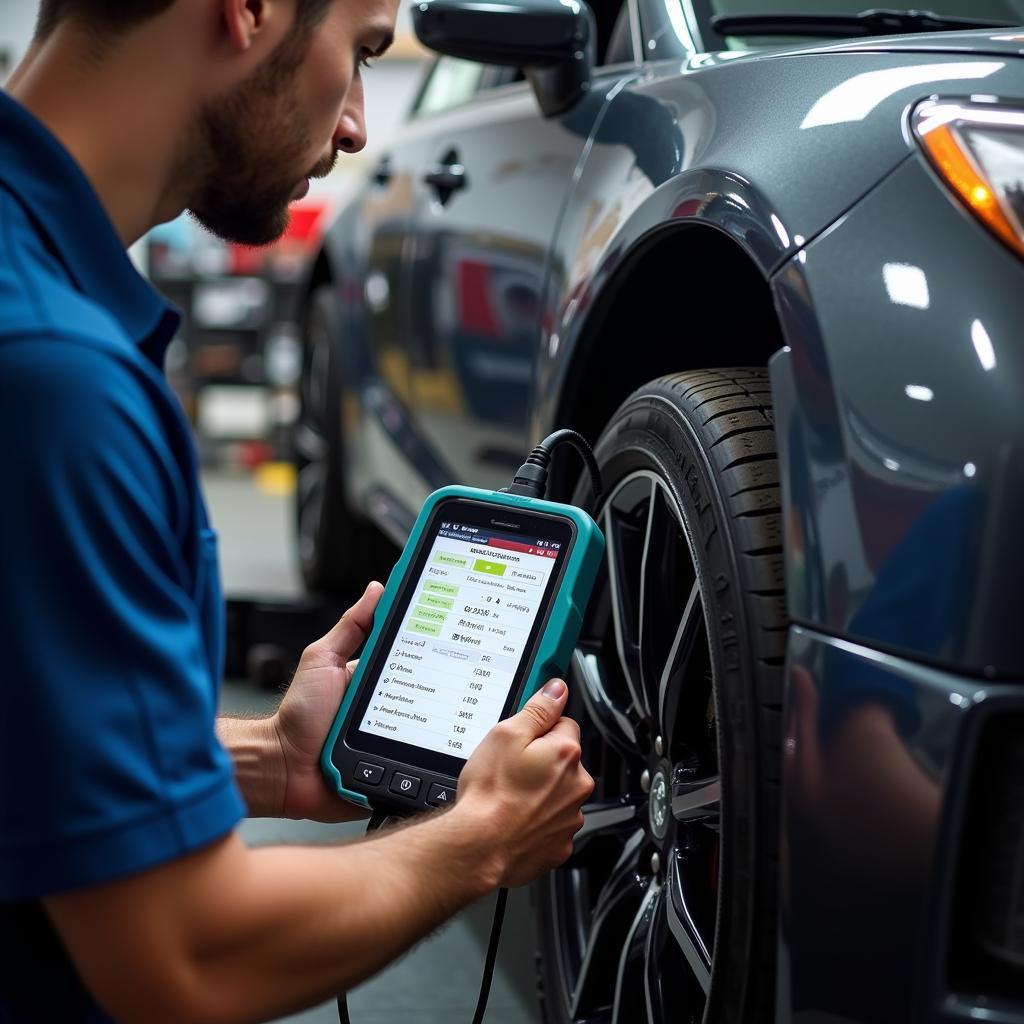 Mechanic Using a Professional-Grade Scan Tool to Diagnose Car Problems
Mechanic Using a Professional-Grade Scan Tool to Diagnose Car Problems
How to Use a Diagnostic Scan Tool
Most scan tools connect to the OBD-II port, typically located under the dashboard on the driver’s side. Once connected, turn on the ignition and follow the on-screen prompts to read and clear codes. You can also view live data and perform other functions depending on the capabilities of the scan tool. Looking to buy a used car? A car diagnostic tool can help.
Conclusion
Choosing the best diagnostic scan tool for cars involves understanding your needs and the features offered by various tools. Whether you’re a professional mechanic or a DIY enthusiast, investing in the right scan tool can empower you to diagnose and address car problems effectively, saving you time and money in the long run. Contact CARW Workshop at +1 (641) 206-8880 or visit our office at 4 Villa Wy, Shoshoni, Wyoming, United States, for assistance in finding the perfect diagnostic scan tool to meet your specific needs. We’re here to help you make the right choice.
Are you looking for auto diagnostic tools in South Africa? Check out auto diagnostic tools South Africa.
FAQ
-
What is the OBD-II port? The OBD-II port is a standardized diagnostic interface found in most vehicles manufactured after 1996. It allows access to the vehicle’s onboard computer for diagnostic purposes.
-
Can a diagnostic scan tool fix my car? While a scan tool can diagnose problems, it typically cannot fix them directly. It identifies the issue, enabling targeted repairs.
-
How much does a diagnostic scan tool cost? The cost varies depending on the features and capabilities. Basic code readers can be affordable, while professional-grade tools can be significantly more expensive.
-
Do I need a professional-grade scan tool? If you’re a DIYer, a basic code reader or OBD-II scanner is likely sufficient. Professional mechanics require the advanced features of a professional-grade tool.
-
How often should I use a diagnostic scan tool? Regularly checking for codes, especially when the check engine light illuminates, can help identify potential problems early.
-
Can I use a diagnostic scan tool on any car? Most modern cars use the OBD-II standard, ensuring compatibility with a wide range of scan tools. However, some older vehicles may require specialized tools.
-
Where can I buy a diagnostic scan tool? Diagnostic scan tools are available online, at auto parts stores, and from specialized retailers.



